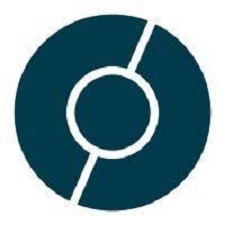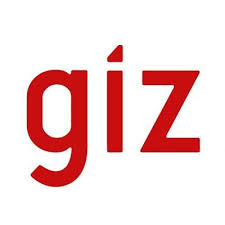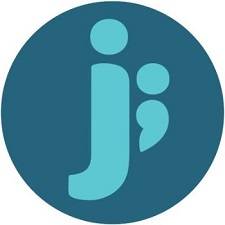Job Vacancies at SEND Sierra Leone – 2 Positions
SEND Sierra Leone is recruiting for the projects below.
1.) Expression of Interest (EOI) for Consultant
2.) Terms of Reference - End-Line Project Evaluation
About SEND
We are a non-governmental organisation dedicated to creating a Sierra Leone where respect for human rights, accountable governance, food and nutrition security, and equal opportunities for men and women to thrive. We liaise with communities, traditional authorities, government institutions and foreign partners to combine resources to develop innovative solutions to alleviate poverty and enhance quality self-reliance.
(adsbygoogle = window.adsbygoogle || []).push({});
SEND Sierra Leone has adopted the global Sustainable Development Goals (SDGs) to guide national development planning and implementation with our strategic approach. The pursuit of economic equality and social equity are mainstreamed in the SDGs. Our commitment to the government is to improve the delivery of social services, strengthen gender and social inclusion, and prioritise the education sector.
SEND Sierra Leone is an independent structure, a local NGO registered in Sierra Leone. Our portfolio includes community development, WaSH, health, nutrition/agriculture and women's empowerment.
Intervention areas are in the districts of Kailahun, Kenema, Kono, Western Areas, Urban and Rural communities, Bonthe and more recently, Kambia and Pujehun.
Our vision is to see a Sierra Leone where people's rights and well-being are guaranteed. Our mission is to promote good governance, voice, accountably essential services and equality for women and men in Sierra Leone.
See details and how to apply below.
1.) Expression of Interest (EOI) for Consultant
Project context
(adsbygoogle = window.adsbygoogle || []).push({});
Globally, women account for almost two-thirds of all adults unable to read – 515 million lack basic reading skills—only 2% of the poorest rural females in low-income countries complete upper secondary school. Much work remains to be done to achieve gender equality in education and ensure that the pandemic doesn't reverse efforts or wipe out the progress made since 1995. In terms of gender inequality, the educational sector is not exempted. Harmful gender norms in society bring gender bias in education, influence teachers' attitudes, subject and career choices, and affect women's leadership, governance, and inclusive development opportunities. Gender norms and stereotypes are learned in early childhood. But few countries pay attention to gender equality in early childhood teaching and learning. Gender discrimination is a threat to inclusive education, and teachers' attitudes on gender affect student educational experiences. Gender shapes teacher perceptions of student academic ability and behaviour (Bettie, 2002; Ispa-Landa, 2013; Cherng and Han, 2018). Teacher attitudes can mirror societal biases and affect student achievement, even when explicit.
Gender inequality exists in teacher recruitment and promotion to leadership. Women make up 94% of teachers in pre-primary, 66% of teachers in primary, 54% in secondary and 43% in tertiary education. Teachers still expect girls and boys to have different academic abilities, which affect educational outcomes.
In Sierra Leone, gaps still exist in fulfilling the commitments to gender equality. Female teachers and female workers in the school governance system are less considered in the different leadership structures within the school system like school support staff, form masters, departmental heads, principals and heads teachers. This further contributed to fewer female teachers and female workers in the education sector across the Country. For the past years, all education ministers have been men.
The education sector is not unique in that the interaction of gender with other factors further aggravates disparity at women's expense in leadership and management positions. The illiteracy rate, especially among young women and girls, is high, with 66% of women who have never been to school compared to 50 % of men. This has resulted in women's poor representation in all sectors of life, including the education sector, governance and management. Gender inequality is deeply rooted in religious, traditional and cultural practices and women and girls experience discrimination and disadvantage at all levels.
Due to typical negative cultural beliefs and practices, access to quality education, retention, and school completion remain challenges for women and girls. These factors are compounded by poverty, gender discrimination, long distances to schools, perceived low value placed on education, harmful social norms practices, and an unsafe learning environment. Due to these factors listed above, many girls in Sierra Leone fail to complete primary school or transition from primary to Junior Secondary School (JSS). Furthermore, few opportunities exist for alternative education for out-of-school girls, which could help them acquire functional literacy for sustainable livelihoods and economic empowerment to realize their full potential and contribute meaningfully to nation-building.
(adsbygoogle = window.adsbygoogle || []).push({});
Generally, Female teachers across Sierra Leone, unlike other professions like the Women in the media, are not organized, structured, and unified. The ability of women to maximize their freedom and exert considerable social influence is limited. Relationships and opportunities among women are similarly limited, and connections with others for sharing and leveraging resources to support women remain weak in the face of traditional practices that continue to disempower women.
Despite the progress made, the education sector in Sierra Leone continues to lack women as leaders such as directors of education, heads of schools, departments heads in education, heads of teachers' unions and bodies. As a result, education planning and implementation often lack the voice and contribution of female teachers, female education workers, and their experience that they can bring to bear. These factors are because the Ministry of Basic and Senior Secondary Education (MBSSE) lacks policies and approaches to addressing the leadership inequalities that female teachers and workers face in managing and implementing education services.
Given the challenges, the PEWLESS project is proposed to improve women participation in decision-making, leadership, and governance in the education sector in Sierra Leone. SEND's organizational and delivery capacity will be enhanced, and women's participation in decision making, leadership and governance in the education sector in Sierra Leone strengthened through awareness raising and self-reliance training for female teachers in three districts, creation of the national Female Teachers and female education workers in the education sector network, study of female teachers in Sierra Leone and their concerns, and education conferences to discuss key education issues.
SEND will build the capacity of Female Teachers and female education workers in the education sector on networking, lobbing and deployment role, policies, standards, guides, and to develop related frameworks in support of quality education Service delivery and gender equality in three districts. Fatherhood mentorship, and capacity enhancements to enable the MBSSE, TSC and other education bodies to understand the inequalities that exist in the governance system and how it can limit the participation and performance of women in leadership and governance in the education sector, and further propose solutions to this inequality.
The project is expected to benefit 1000 female teachers across Sierra Leone, 300 female workers in the education sector in the education sector in Sierra Leone, 600 education stakeholders and leaders, and 1200 teachers directly benefiting from ICT education. The indirect beneficiaries of the project are 21,700, of which 80% are women.
The project
SEND Sierra Leone and TERRA TECH GERMANY, funded by German Federal Ministry for Economic Cooperation (BMZ), are planning a project 'Promoting Equality and Women's Leadership in the Education Sector in Sierra Leone (PEWLESS). The overall objective of thisaction is to improve women's participation in decision-making, leadership, and governance in the education sector in Sierra Leone.
(adsbygoogle = window.adsbygoogle || []).push({});
The following are the proposed results of the action:
∙ Result 1: Strengthened female teachers' and female workers in the education sector's collective voice, knowledge, capacity on gender, and accountability in education at the district and national level.
∙ Result 2: Female teachers and female workers are empowered through capacity building and awareness-raising to participate effectively in education service delivery
∙ Result 3: Increased advocacy and networking on female teachers' and female workers' participation in education leadership and management
∙ Result 4: Enhanced capacity of SEND and the MBSSE for effective and result-oriented education programme delivery
Purpose of the consultancy
SEND Sierra Leone is seeking the services of a consultant to conduct a feasibility study for the proposed project to guide the development of the project proposal and submission to the donor as part of the processes that will guide the project development implementation. The final report will take the form of findings and recommendations for possible strategies and activities with clear qualitative and quantitative description of each indicator and develop tools for monitoring, data collection as well as an operational M&E plan.
The consultant will have the overall responsibilities for this assignment and is expected to:
∙ Review relevant project documents, national and international policies to inform the processes and recommendations.
∙ Develop the feasibility study tools including both quantitative and qualitative tools.
∙ Lead the pre-testing of the study tools and refine the data collection questions.
∙ Develop sampling procedure.
Responsible for administrative and logistics support for the study
∙ Recruit andtrain enumerators and supervisors for quantitative and qualitative data collection.
∙ Supervise the quantitative and qualitative data collection.
∙ Analysis of quantitative data in SPSS or similar statistical software.
∙ Analysis of qualitative data in connection with quantitative data.
Write report with recommendations and tools for monitoring, data collection as well as an operational M&E plan
Incorporate comments and finalize report.
∙ Present findings to staff of SEND.
∙ Orientation with SEND staff on the study and recommendations.
Complete the assignment within 30 day from February to 15th March 2022
Roles of SEND Sierra Leone:
Share all relevant project and context documents for background understanding to support the processes of the study.
Review and comment on study methodology, sampling and tools.
Approval of the final study tools.
Give feedback and comments to draft reports.
Organize logistics for study findings sharing event.
The Country Director SEND SL with support from the Programme Officer and Monitoring and Evaluation Manager will supervise the consultant
Methodology
This study will be conducted within the target area of Kenema, Kailahun and Kono Districts with a representative sampling in each district from within direct beneficiaries of 144 primary schools, 72 Junior secondary schools, 36 Senior secondary schools, 300 female teachers,90 female workers in education, 180 education stakeholders and leaders and 300 community stakeholders and parents and other stakeholders of the project. The methodology is expected to include both quantitative and qualitative tools.
Quantitative tools are expected to capture but not limited to the following:
∙ Educational characteristics of target group-highest level of qualification, years of work experience, age, sex, not/on payroll, level attached(pre-prim. Prim. JSS, SSS, etc.)
∙ Minimum years of education
∙ Living standard of target groups
∙ Access to adequate education facilities
∙ Access to and use of education facilities/services
Qualitative tools are expected to capture but not limited to the following:
∙ Knowledge, attitudes and behavior around gender education
∙ Perception and attitudes towards gender education
∙ Opportunities and challenges for gender education interventions
Gender education potentials and recommended strategies.
Knowledge, attitudes and behaviors (KAB) around education practices at household, institutional and community level.
Access to quality education services
Outline realistic time line for the proposed set of activities;
Identify and analyze any governance and capacity issues that will be critical during the implementation of the project as well as to ensure sustainability of the project.
Identify relevant initiatives (if any) to improving women's participation in decision-making, leadership, and governance in the education sector being implemented or supported by the government or development partners in the relevant locations;
(adsbygoogle = window.adsbygoogle || []).push({});
Proposed structure for baseline report:
Executive summary
Background and context
Methodology
Presentation of findings (thematic) and discussion of findings (using both quantitative and qualitative data)
Recommendations for the proposed approaches in the Concept Note
Recommendations for awareness raising strategies
Recommendations for supporting activities (e.g. female and teacher training, IT interventions, education leadership and management, and capacity enhancement)
M&E Framework for the monitoring of feasibility indicators
Work plan and financial proposal
The consultant is expected to present a proposal inclusive of work plan and cost of service for consideration, including the following:
∙ Detailed CV of consultant
∙ Elaboration and outline of methodology and sampling
∙ Work plan (indicating breakdown of number of days allocated for various tasks)
∙ Final financial proposal
∙ 3 references
Expected qualifications and competence of consultant:
∙ Background in education or in feasibility studies, community development, or similar areas of discipline.
∙ Demonstrated experience conducting similar studies for (I)NGOs.
∙ SPSS license and mastery (or similar statistical software package).
∙ Willingness to travel to remote area for the assignment.
Consultant must be based in Sierra Leone
Consistently approaches work with energy and a positive, constructive attitude
Remains calm, in control and good humoured even under pressure
Demonstrates openness to change and ability to manage complexities
Good inter-personal and teamwork skills, networking aptitude, ability to work in multicultural environment
Committed to deadline
Duration of the assignment:
The consultant must complete the assignment within 30 day from February to 15th March 2022
Payment Terms
Upon the signing of contract, SEND will make 30% advance payment to facilitate work. 30% of the contractual sum will be paid after submitting the first draft report and the final 40% will be made after report is submitted, discussed and endorsed by SEND and Terra Tech. However, 5.5% will be deducted from the total contract value as required by laws of Sierra Leone.
Please forward proposal to:
Kindly quote only the Consultancy in the subject line.
Closing date: 21st January 2022
(adsbygoogle = window.adsbygoogle || []).push({});
2.) Terms of Reference - End-Line Project Evaluation
Project background
SEND Sierra Leone, funded by German Federal Ministry for Economic Cooperation (BMZ AND TERRA TECH), is implementing the project ‘Integrated Project for Education and Empowerment of Women and Civil Society Groups in Sierra Leone to contribute to achieving the Sustainable Development Goals (SDGs) 1 (no poverty), 4 (quality education), 5 (gender equality) and 8 (decent work and economic growth) and to the successful implementation of the Local Government Act (LGA) in Kailahun and Kenema.
People generally read. Consequently, they lack practice and are insecure when reading. Text comprehension is usually poor (an assessment at the beginning of the project will collect more information on that)
CBOs/CSOs lack capacity regarding project concept, implementation, and evaluation, and their presence at the chiefdom level and within the District Council Coordination Forum (DCCF) is a week
Due to the lack of knowledge about the application of funds and monitoring, there are few ways to check the institutions' transparency and the budget funds they spend. Institutional action is therefore not controlled by the civil society as it should be to meet the criteria for good governance
There is hardly any public discourse regarding pressing issues in education, development, and gender inequality. Community leaders mostly don’t use their influence to tackle problems, especially in education.
Etc.
(adsbygoogle = window.adsbygoogle || []).push({});
Project objective:
To contribute to achieving the Sustainable Development Goals (SDGs); 1 (no poverty), 4 (quality education), 5 (gender equality), and 8 (decent work and economic growth) and to the successful implementation of the Local Government Act (LGA) in Kailahun and Kenema
The following outcomes are expected to be achieved:
80% of all teachers trained state that after taking part in the training, they are more aware of educational problems and possible approaches to solving these problems and that their lessons' didactic quality has improved.
The literacy rate has been increased by 30% within at least 90% of the target group (2, 925 persons).
Teacher associations, school management committees (SMCs), and head girls/head boys communicate about educational issues; head girls/head boys articulate their interest towards the SMCs and stand for their rights.
In a survey conducted after the project, at least 80% of the participating community leaders explained that they know about their possibility to influence the development of the educational sector and intend to use their influence.
Etc.
(Further details will be shared with successful applicant)
2. Objectives of the Evaluation;
The main objective of this end line evaluation and impact study is to;
understand the impact drawn by the project, especially at the beneficiary level
also to understand the relevance, sustainability, effectiveness, efficiency, feasibility, etc.
use the report to inform future education programme design
share with donor organisations in fulfilment of accountability for funds utilised
file for reference purpose
etc.
(adsbygoogle = window.adsbygoogle || []).push({});
3. Methodology of the evaluation
This evaluation will be based on a combination of:
• Literature Review: a desk study of available project data, baseline and mid-line evaluation reports, other publications, reports, and documentation on education and women empowerment project implementation.
• Key Informant Interviews, Focus Group Discussion and Questionnaire survey with:
Project staff, teachers, pupils, school management committee members, gender model families, Kenema and Kailahun Women in Governance Network (CBOs/CSOs), local authorities-chiefs/women leaders/religious leaders, Inspector of Schools and Ward Councilors, etc. in project target communities.
The evaluation of “Integrated Project for Education and Empowerment of Women and Civil Society Groups in Sierra Leone” will be conducted according to the OECD/DAC criteria for evaluations and within 20 communities and 30 primary schools (in the same communities) in Malegohun and Kissi Tongi chiefdoms in Kenema and Kailahun, respectively.
4. Scope of work: The scope of this evaluation will comprise but not be limited to open questions along with the OECD/DAC Evaluation criteria
No
Evaluation Criteria
Evaluation Questions (Suggestions)
1.
Relevance
The extent to which the objectives of a development intervention are consistent with beneficiaries’ requirements, country needs, global priorities and partners’ and donors’ policies.
2.
Effectiveness
The extent to which the development intervention’s objectives were achieved, or are expected to be achieved, taking into account their relative importance.
3.
Efficiency
A measure of how economically resources/inputs (funds, expertise, time, etc.) are converted to results.
4.
Impact
Positive and negative, primary and secondary long-term effects produced by a development intervention, directly or indirectly, intended or unintended.
5.
Sustainability
The continuation of benefits from a development intervention after major development assistance has been completed.
6.
Learning and
Replicability
Lessons that may have implication for the future of the development intervention or may be relevant for wider application.
5. Areas of specific attention
Are there any favourable/adverse unexpected effects of the project?
To what degree has the project ignited and positively fueled beneficiaries participation in the project?
What is needed to secure the sustainability of the project's positive progress (if any)?
Are there any particular lessons learned in the unexpected effects of the project?
6. Reporting requirements
The Consultant will have the following reporting requirements:
Presentation/discussion of preliminary findings, conclusions and recommendations with SEND staff.
The draft report will be submitted to SEND for review;
The final report will be submitted after the reception of comments from SEND.
An outline of activities and strategies SEND could incorporate in future programming and describe how they can be carried out.
The report should include the following chapters: an executive summary, description of the evaluation methodology, background information, and chapters on findings, conclusions, and recommendations for the future. The findings should be supported and documented with pictures.
The final report will also include annexes, including a list of people and organizations interviewed and their contacts, and a list of reviewed documents.
7. Expertise required
One regional/local expert with relevant higher education and experience in gender issues, education/ reading and comprehension, community development, governance, and conduct evaluations following the OECD/DAC criteria (minimum five years of relevant experience).
8. Time frame
The Consultant is expected to perform this contract within 22 working days (February to 15th March 2022). The duration of the assignment will be broken down as follows;
No
Task
No. of days
Frequency
Total
1
Desk study and preparation of interviews, including the planning of the various meetings in cooperation with the Project Manager
2
1
2
2
Interviews with the project staff from the Kenema and Kailahun, offices (Project operational districts)
2
1
2
3
Interviews at each Project operational districts in the eastern region of Sierra Leone (Kenema and Kailahun) with relevant stakeholders
5
2
10
4
Writing of preliminary findings and recommendations
3
1
3
5
Presentation of the report to SEND
1
1
1
6
Write a draft report and share it with SEND via email after completion of fieldwork
2
1
2
7
Complete and submit a final report to SEND after reviewing from SEND
2
1
2
Total
22
Interested individual consultants must submit the following documents/information to demonstrate their qualifications:
(adsbygoogle = window.adsbygoogle || []).push({});
The technical proposal should contain:
A brief methodology on how they will approach and conduct the assignment.
Explain why they are the most suitable for the work, including experience in similar assignments and the relation to the above-required qualifications.
The financial proposal in Sierra Leone currency, specifying a fee per day and total requested amount including all related costs, e.g., fees, per diems, travel costs, phone calls, etc.
Latest CV of the Consultant and those of support team members that will assist in executing this assignment, should the Consultant decide to work with a team. The Consultant should also include the names of at least three references.
Terms of payment:
Upon the signing of the contract, SEND will make a 50% advance payment to facilitate work. 50% of the contractual sum will be paid after the final report is submitted, discussed, and endorsed by SEND. However, 5.5% of the total professional fees will be deducted from during the payments as per laws of Sierra Leone.
Closing date: 21st January 2022
Applications must be submitted to
ayamga@sendsierraleone.com
jattu@sendsierraleone.com
Women are strongly encouraged to apply.
(adsbygoogle = window.adsbygoogle || []).push({});
Disclaimer: Careerical eConsult posts job listings for the convenience of job seekers. We do not endorse or recommend employers, and a posting does not constitute an endorsement or recommendation. Careerical eConsult explicitly makes no representations or guarantees about positions listed on our website. Careerical eConsult is not responsible for safety, wages, working conditions, or other aspects of employment. It is the responsibility of applicants to research the integrity of the organizations to which they are applying. We advise you to use caution and common sense when applying for any position with an organization or private party.





